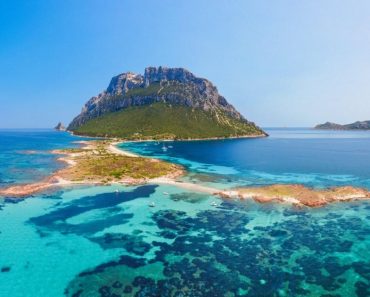Published on
October 17, 2025
If you’re planning on visiting Greece for the weekend, you should prepare for some pretty rough weather, with storms and Sahara dust expected to sweep across the country. The first wave of Sahara dust is expected to arrive on Saturday, October, October 18, and the second on Monday, October 20, 2025. , combined with cooling temperatures, strong winds and rain, will all have complicating effects on travel, particularly in the south and west of the country.
Sahara dust and extremely bad weather in particular could prove problematic by limiting visibility and making some tourist activities and hotspots harder to access, particularly those that involve outdoor activities and the coast. Those considering travel to southern cities with Santorini, Crete, and even Athens should edgeslify their plans, compensate, or take other precautionary actions.
Sahara Dust and Storms’ Effect on Greek Tourism
Foremost at risk are the southern and western countries, which include some of the biggest tourist attractions like Athens, the Peloponnese, and even the islands of Crete and Santorini.
In this area, visitors may notice there is a haze that seems to ‘suffocate’ the surrounding area. This haze is mostly composed of a dust that, while not considered dangerous, can irrit certain sensitive individuals. Visitors that have existing respiratory issues or asthma are more susceptible to the dust, and should stay inside during peak hours of dust activity.
For those that are planning to go to the Acropolis in Athens, ancient ruins, and beaches on the south coast, one should consider postponing going in order to avoid the discomfort surrounding the dust clouds. Furthermore, travelers that have scheduled outdoor tanks, hikes, or boat trips could be faced with cancellations or significant delays, due to low visibility from storms.
Dust from the Sahara and much more will significantly lower temperatures, bring strong winds and rain covering multiple parts of Greece. These conditions will make mobility much more difficult in certain places of Greece.
Athens and other popular tourist centers might get a bit chilly, with winds and rain, which make sightseeing and working and outdoor activities a bit difficult. Like the islands Santorini, Mykonos, and Crete which, are known for their sunny and warm weather, might get a bit colder and stormy, which could ruin the beach fun and other outdoor activities.
Strong winds and rain might obscure the schedules of ferries that connect the different islands, and are crucial to the tourism networks for those that wish to explore the pristine islands of Greece. Visitors who have reserved tickets for different island tours or ferries should look out for the latest announcements, and should prepare to rebook their tickets. Stormy weather might also affect the planned multi day visits to archaeological wonders and natural preserves, which, during other times of the year, serve the tourists with the best travel experience.
Travel Tips for Visitors in Greece Facing Extreme Temperature Situations
As for individuals who are planning to fly over to Greece during the days the country is facing extreme thunderstorm lightning along with the Saharan dust wave, these are practical pointers when deciding how to best prepare for the country in these harsher conditions:
Stay Updated: Communication changes and the latest reports, along with warnings, should be ascertained frequently from specialized agencies such as the Hellenic National Meteorological Service.
Always be ready to receive the latest travel ancillary variables reports to know in advance travel areas associated to the sailing of ferries, and also flights, as well as outdoor activities.
They are quite welcome It Appears: For people Awaiting them with outdoor attributes, try planning activities further in advance and remove them, particularly to the days where the level of lightning and thickness of the sand is at the peak. A lot of indoor points of interest such as the National Arche Museum located in Athens will serve as a very pleasurable alternative for experiencing and learning about Greek culture.
Health Concerns: Those who have specific nasal concerns should travel along with the required dose of medicine and indoor roaming during the highlighted dust time is the best. For those roaming outside, protective face coverings will also be helpful with cornering the dust.
Construction Delays: It is best to adapt to the very likest scenario which is said to drop the ferries and flights and may also delay with a lot to carry. Therefore, always have a little extra money when moving and just in case look for things that have dropped.Protect Your Belongings: Dust blankets any surface at a very rapid pace, making it crucial that you protect delicate items like your computers, cameras, and other valuables. Storing these items in dust-proof bags is a great start.
Indoor Activities for Tourists in Athens and Other Impacted Regions
Even in Athens and other parts of Greece, inclement weather does not prevent active tourists from pursuing a large number of indoor activities.
Athens has the Acropolis Museum and the National Archaeological Museum, along with other top notch museums that allow its customers to immerse themselves in the culture and history of Greece.
Some sites are open to the public like the Acropolis, and the Temple of Olympian Zeus, though visitors may not truly appreciate them due to the conditions of the weather.
In Athens, the Odeon of Herodes Atticus is a venue for tourists and locals to relish in Greek music and even dance, along with splendid theater performances. Moreover, you can also take part in a cooking class, fully revolving around the exquisite Greek cuisine.
Travelling to Crete and Other Islands When There’s Bad Weather
Most tourists tend to visit the islands Crete, Mykonos and Santorini, but with the impending storms, ferry services to the islands and back to the mainland may face some hiccups. Monitoring the ferry schedule before traveling is just as important. The Greek Ministry of Shipping and Island Policy which has the most recent updates on ferry services which are not operating.
While the clouds may limit visibility, they do not however, completely inhibit access to the islands and tourists can still appreciate the culture which the towns, eateries, and even some of the activities have to offer. For those of you who are considering traveling to Greece, make sure to contact your guide or accommodation so you can make those altered arrangements, based on the weather conditions you anticipate.
Travelling to Greece, Still, Despite Bad Weather
Greece undoubtedly remains one of the most desired tourists destinations even when drumsticks of rain are pouring down alongside the fine grains of Sahara dust. In fact, with Greece’s rich culture and equally mesmerizing views, planning your itinerary and being open to new things can help you make the most of your visit. Polish your schedule, prepare a backup if rain forces you to stay inside, and ensure that, with all that is done, you have a productive and safe visit.







